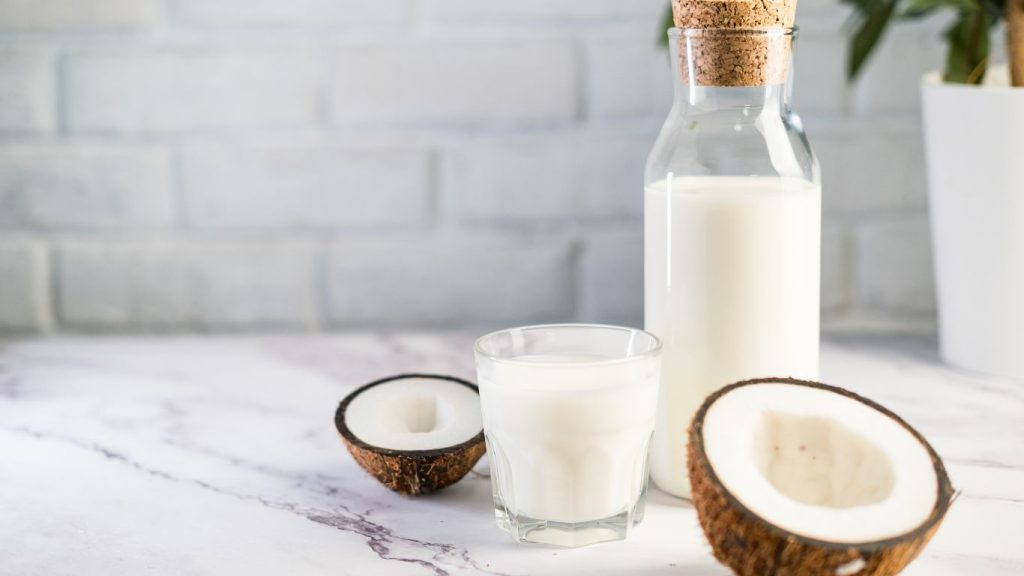Millions of people worldwide experience lactose intolerance, which makes consuming dairy products a challenge. Luckily, coconut milk for lactose intolerance offers a delicious and nutritious alternative that is naturally lactose-free. In this guide, we will explore the benefits of coconut milk and how it can be seamlessly integrated into a lactose-free diet, making it a perfect option for anyone looking for dairy-free alternatives.
Understanding Lactose Intolerance
Lactose intolerance is the body’s inability to properly digest lactose, a sugar found in dairy products. This is caused by a deficiency of lactase, the enzyme responsible for breaking down lactose in the small intestine. Without enough lactase, lactose remains undigested and is fermented by bacteria in the gut, leading to symptoms like bloating, gas, and diarrhea.
According to health professionals, lactose intolerance is not life-threatening but can significantly affect one’s quality of life. For those who enjoy milk-based products, finding a suitable substitute is crucial.

Why Coconut Milk is Perfect for Lactose Intolerance
Coconut milk for lactose intolerance offers a range of benefits. Being naturally free of lactose, it’s a fantastic option for those who cannot consume dairy. Derived from the flesh of mature coconuts, it has a creamy texture that closely resembles regular milk, making it an ideal choice for a variety of recipes.
Key Benefits of Coconut Milk
- Lactose-Free: As mentioned earlier, coconut milk does not contain lactose, making it an ideal substitute for people with lactose intolerance.
- Rich in Healthy Fats: Coconut milk is abundant in medium-chain triglycerides (MCTs), a type of fat that is easily digestible and may promote weight loss and energy.
- Vegan-Friendly: Coconut milk is plant-based, catering to those who follow a vegan or vegetarian lifestyle.
- Gluten-Free: In addition to being lactose-free, coconut milk is also gluten-free, which is beneficial for individuals with gluten sensitivities.
Nutritional Profile of Coconut Milk
Coconut milk boasts a unique nutritional profile. A typical serving (1 cup) of coconut milk contains:
- Calories: Approximately 445 kcal
- Fats: 48g (of which saturated fats are 42g)
- Carbohydrates: 6g
- Protein: 5g
- Calcium: 4% of the daily recommended intake
- Iron: 22% of the daily recommended intake
The high fat content of coconut milk is primarily from saturated fats, which are often misunderstood as harmful. However, the MCTs in coconut milk can have various health benefits, including improving brain function and boosting metabolism.
Health Benefits of Coconut Milk for Lactose Intolerance
1. Promotes Digestive Health
Since coconut milk is free from lactose, it can be a more gentle option for those with sensitive digestive systems. Unlike dairy, which can lead to bloating and gas in lactose-intolerant individuals, coconut milk is easier to digest and offers a smooth, creamy consistency that can be incorporated into various dishes without causing digestive distress.
2. Supports Heart Health
One concern people may have with coconut milk is its fat content, but the types of fats in coconut milk, specifically MCTs, have been shown to support heart health. Studies suggest that MCTs may help increase the levels of good HDL cholesterol in the body, while lowering the bad LDL cholesterol. This balance is crucial for maintaining heart health and preventing cardiovascular diseases.
3. Boosts Immune System
Coconut milk contains lauric acid, a fatty acid that can support the immune system by fighting off harmful pathogens like bacteria and viruses. This makes coconut milk not only a good choice for lactose intolerance but also a functional food that supports overall wellness.
4. Weight Management
The MCTs found in coconut milk for lactose intolerance can also aid in weight management. These fats are quickly metabolized and used as energy, rather than being stored as fat. This can help improve metabolism and support individuals in maintaining a healthy weight while enjoying a rich, creamy milk alternative.
Comparing Coconut Milk to Other Dairy-Free Alternatives
While coconut milk for lactose intolerance is a fantastic option, there are other dairy-free alternatives to consider, such as almond milk, soy milk, and oat milk. Each has its own benefits, but coconut milk stands out due to its rich texture, nutrient profile, and versatility.
1. Almond Milk
Almond milk is a popular low-calorie alternative, but it lacks the creamy consistency that coconut milk provides. It also tends to be lower in fat and may not offer the same depth of flavor in cooking and baking.
2. Soy Milk
Soy milk is rich in protein, making it a good option for those looking to boost their intake. However, some people may experience digestive discomfort with soy products, and the flavor can be stronger than coconut milk.
3. Oat Milk
Oat milk has a mild, sweet taste and is becoming a popular choice for lattes and cereals. However, it’s typically lower in fat and does not provide the same creamy texture that coconut milk brings to recipes.
How to Incorporate Coconut Milk into a Lactose-Free Diet
One of the best things about coconut milk is its versatility. Whether you’re looking to add it to your morning coffee, use it in soups, or create dairy-free desserts, coconut milk for lactose intolerance can be used in a wide range of recipes.
1. Use it in Smoothies and Beverages
One of the easiest ways to incorporate coconut milk into your diet is by using it as a base for smoothies and beverages. Its creamy texture blends well with fruits like bananas, berries, and mangoes. You can also use it to replace regular milk in your coffee or tea for a delicious, lactose-free alternative.
2. Substitute in Cooking and Baking
Coconut milk for lactose intolerance is a perfect substitute for regular milk or cream in cooking and baking. It’s commonly used in curries, soups, and sauces due to its rich texture and ability to balance out strong flavors. In baking, you can use it in cakes, puddings, and dairy-free ice creams to create delicious, lactose-free treats.
3. Dairy-Free Yogurt and Ice Cream
Coconut milk can also be used to create dairy-free versions of yogurt and ice cream. These products are becoming increasingly popular, allowing those with lactose intolerance to enjoy creamy desserts without the discomfort.
Conclusion: Why Coconut Milk for Lactose Intolerance is the Best Choice
For those who are lactose intolerant, coconut milk is an excellent dairy-free alternative. Its rich, creamy texture, health benefits, and versatility in cooking and baking make it a must-have in any lactose-free diet. Whether you’re adding it to your morning smoothie, using it in soups, or making dairy-free desserts, coconut milk for lactose intolerance provides a nutritious, delicious, and digestible option.
Luxenature Indonesia, a leading exporter and supplier of coconut products, from semi-husked coconut to edible copra, coconut oil, desiccated coconut, nata de coco, coconut cream, and coconut milk. With a strong commitment to quality and sustainability, Luxenature Indonesia caters to diverse global demands. We are your reliable partner for sourcing premium coconut products, ensuring quality and sustainability in every product we offer.
For inquiries and more information, contact us at Luxenature and let’s grow your business with our premium coconut products.


